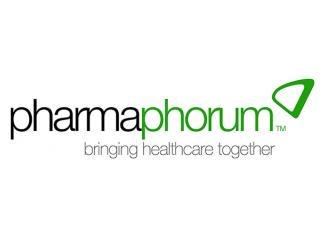
Iliyan D. Iliev
Iliyan Iliev is an Immunologist and an assistant professor at the Department of Medicine and the Jill Roberts Institute for Research in IBD at Weill Cornell Medical College, New York. He earned his PhD from the European School of Molecular Medicine and the University of Milan, and was previously associated with the Tohoku University in Japan and the Cedars Sinai Medical Center in Los Angeles. Dr. Iliev’s laboratory studies the interaction between commensal microbiota and the immune cells at the mucosal surfaces of the body.

Eduardo Donoso

Professor Katrine Whiteson
I am a biochemist interested in human associated microbial and viral communities. I use metagenomics, metabolomics, microbial genetics and ecological statistics to answer questions about how microbes and viruses affect human health. I am interested in understanding how individual and persistent human-associated microbial and viral communities affect health. Infection with a bacterial pathogen, vaccination, immune development and even taking a Tylenol does not occur in a vacuum. Dynamic microbial and viral communities constantly inhabit our bodies, encoding the majority of the unique genes that alter these processes. Resident microbial and viral community composition is unique to each human.
Specifically, I am working to understand the role of persistent microbial colonization in triggering inflammatory episodes in Cystic Fibrosis patients. Understanding microbial interactions and changes in microbial physiology that are associated with changes in patient status may lead to the development of biomarkers to diagnose changes in infection earlier and more specifically.
I am also interested in how phage shape dynamic host-associated microbial communities, and in characterizing the function of the 70% of phage encoded genes with no known function.

Flavia Teles
Dr. Teles comes to Penn Dental Medicine from the University of North Carolina (UNC) School of Dentistry, where since 2014, she served as Research Associate Professor in the Department of Periodontology, and during that same period, she served as Associate Research Investigator in the Department of Applied Oral Sciences within the Center for Periodontology at The Forsyth Institute, where she had been part of the staff since 2009. Also since 2009, she was an instructor in the Department of Oral Medicine, Infection, and Immunity at Harvard School of Dental Medicine (HSDM), where she was the director of the predoctoral oral microbiology and immunology course. Dr. Teles has also held faculty posts at Mount Ida College, Newton, Mass., and Estácio de Sá University School of Dentistry and Pontificia Universidade Catolica Dental Institute (PUC), both in Rio de Janeiro, Brazil.

Ricardo Teles
Dr. Teles comes to Penn Dental Medicine from the University of North Carolina School of Dentistry, where he served as OraPharma Distinguished Professor in the Department of Periodontology since 2014 and Vice Chair of the Department since 2015. Part of The Forsyth Institute since 2003, Dr. Teles most recently served as Senior Research Investigator (2014-2017) in the Department of Applied Oral Sciences within the Center for Periodontology. From 2010-2014, Dr. Teles also held the appointment of Associate Director of Forsyth’s Center for Clinical and Translational Research and served as the Center’s Director from 2009-2010. Since 2003, he was also a clinical instructor in periodontics at Harvard School of Dental Medicine.

Travis Whitfill
Travis Whitfill is an Associate Research Scientist in the Department of Pediatrics. His background began in molecular biology and biochemistry, after receiving scientific training at the MD Anderson Cancer Center and Duke University. He is the co-founder of several additional startup companies, including a Connecticut-based microbiome company, Azitra Inc. He brings strong background in entrepreneurship and business, and is also a partner in a venture capital fund, Bios Partners, bringing experience in public markets, drug development, and venture capital investments.
His research interests are in pediatric emergency medicine and health policy and to improve pediatric acute care across the United States.

Fabio Domingues


